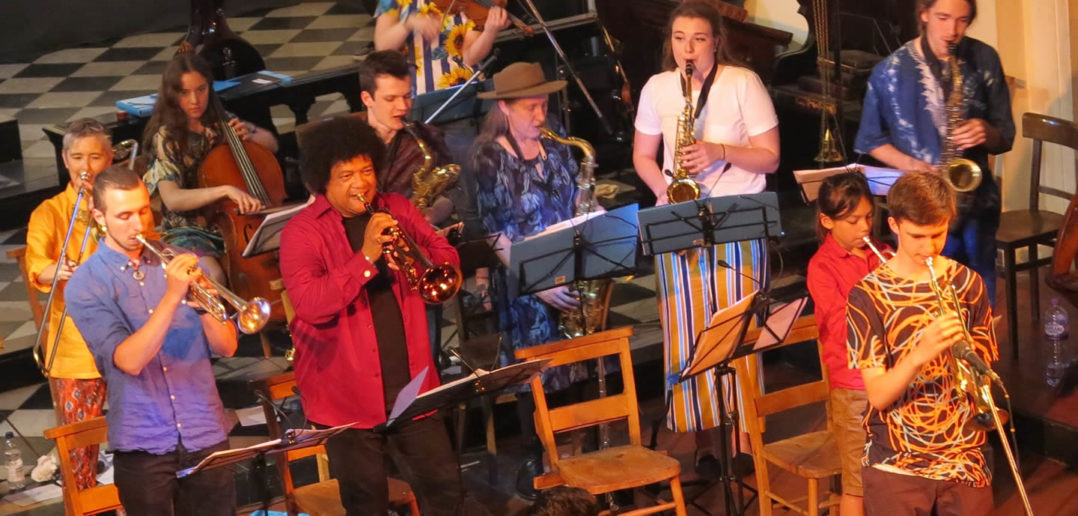Brexit is inching closer by the day, though clarity on what it actually means seems to be harder and harder to find – other than that ‘Brexit means Brexit’ (which makes it crystal clear then!).
At the Grand Union Orchestra, a musical organisation in East London that celebrates music from across cultures and whose members are mainly first-generation migrants or from migrant-based communities, the impact Brexit will have on the music industry is a question whose answer is vital to the work we do.
The increase in anti-immigration sentiments that were part of what led to Brexit already caused a huge problem at WOMAD earlier this year. The festival’s organiser, Chris Smith, criticised the Home Office for its visa restrictions on world music artists that meant three of the acts scheduled for the festival were denied entry to the UK.
Being part of an organisation that celebrates world music, what happened at WOMAD is particularly alarming, as it suggests that we could end up with a music scene dictated by the Home Office. Britain’s triumph should be in our diverse and vivid society, and our music should be a celebration of that, rather than having an industry where only one sound is allowed to be heard.
If this anti-immigration rhetoric continues, artists from across the globe may no longer want to come and perform in Britain, which is something Chris Smith already found, with more and more performers not wanting to attend WOMAD due to this ‘humiliating’ process they were put through by the Home Office. With these issues with visas, which may become an even more prominent problem after March as we do not yet know what immigration policies will look like under Brexit, booking agents and gig promoters may not even want to take the risk in booking musicians from outside of Britain.
But Brexit will not just affect the artists wishing to come to Britain, but also those who want to tour the continent. At the moment, artists can work anywhere in the EU without a work visa but after Brexit, restrictions on freedom of movement means artists may find themselves paying for costly visas and even being heavily taxed for transporting equipment.
For smaller artists, this could prevent them from touring, with Beggars Group, a UK label based group, having previously spoken about their worries that Brexit will lead to, “restrictions on passage for staff and artists.” Burdened by endless paperwork, extra costs and new rules to navigate, Brexit could stop new artists from being able to make a viable career in this industry. This seems to be a widespread concern, with the UK Music survey having found that 50% of those in the music industry (artists, producers and managers) fear that leaving the EU would have negative impact.
Yet there is one brilliant positive to all this: the push back. Though it may be disheartening to live in this period of Brexit, Trump and a general increase in anti-immigration rhetoric, booking agent Clementine Bunel, when speaking to the Guardian about world music said, “There’s much more of a hunger for this kind of music since Brexit [was announced].” At the Grand Union Orchestra, we’ve found people are actively searching for ways to support immigration in Britain, wanting to ensure that Brexit Britain will not be an intolerant and isolated Britain. Instead, it will celebrate the effect migrant has had on our society – and what better way to do that than through the music we listen to?
The Grand Union Orchestra is currently running a series of workshops and performances in support of the Black British Music in Hackney programme. Find out What’s On.




